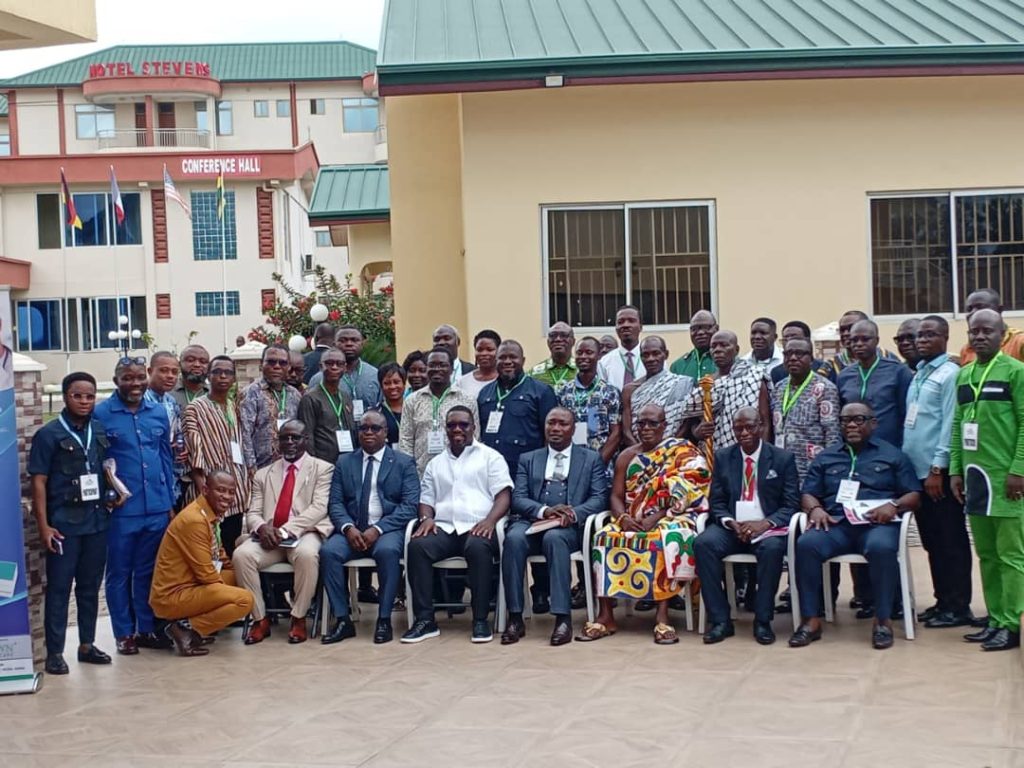MLSC Urges Renewal of Medical Laboratory Science Council

The Need for a Medical Laboratory Science Council in Ghana
Dr. Cephas K. Akortor, General Secretary of the Medical Laboratory Professional Workers’ Union (MELPWU), has renewed calls for the establishment of a Medical Laboratory Science Council in Ghana. This initiative aims to ensure that professionals in the field have direct representation on national regulatory bodies, standard-setting agencies, and key health policy-making platforms.
At the Fourth Annual General Meeting (AGM) of the Society of Medical Laboratory Managers (SMLM)-Ghana in Ho, Dr. Akortor emphasized the importance of such a council. He argued that it would eliminate the need for third-party advocates who may not fully understand the complexities of the profession. Furthermore, he highlighted that this move would align Ghana with international best practices, where independent councils like the UK’s Health and Care Professions Council (HCPC) and Canada’s Medical Laboratory Professionals’ Association of Ontario (MLPAO) regulate the field effectively.
Establishing Medical Laboratory Directorates
In addition to advocating for a council, Dr. Akortor called for the creation of Medical Laboratory Directorates at all levels of healthcare. These directorates should be established in CHPS compounds, CHAG institutions, the Ghana Health Service (GHS), and Teaching Hospitals. He suggested that these directorates would serve as focal points for both managerial and regulatory competence within the healthcare system.
The AGM was held under the theme: “Medical Laboratory Managers’ Involvement in the Core Management: A Necessity in Restructuring Healthcare Delivery in Ghana.” This theme underscored the critical role that laboratory managers play in the overall management of healthcare services.
Institutionalizing Laboratory Managers
Dr. Akortor stressed the need for laboratory managers to be institutionalized within hospital management structures, procurement boards, and planning teams. He also called for the formal recognition of specialist qualifications in the regulatory and public service architecture.
He pointed out that behind every accurate diagnosis and informed clinical decision is a well-managed laboratory. However, he lamented that the healthcare system continues to sideline the very professionals who uphold its core. Over 70% of clinical decisions are based on laboratory data, yet the lab professionals are often overlooked.
Legal Frameworks Supporting Representation
Dr. Akortor questioned why laboratory departments, which are major revenue generators for hospitals, are excluded from strategic decision-making only to be blamed when systems falter. He emphasized that laboratory services are central to healthcare delivery, and the demand for inclusion is a legal entitlement.
He cited several national and international frameworks, including ILO Convention 111 (1958), ratified by Ghana in 1961, Ghana’s Labour Act, 2003 (Act 651)—Sections 10, 13, and 97—and GHS and Teaching Hospitals Act, 1996 (Act 525)—Sections 6(1)(h), 11, 12, and 48(2)(h). These legal provisions enshrine the rights of all health professionals, including medical laboratory scientists, to full representation in governance and leadership.
Call for Unity and Advocacy
Dr. Akortor urged members to work in unity with MELPWU, the Ghana Association of Medical Laboratory Scientists (GAMLS), and other stakeholders to assert their rightful place in Ghana’s health system. He declared to policymakers and authorities that they will no longer accept structural invisibility and that the future of healthcare must be built on inclusion.
“Let this AGM spark a renewed spirit of advocacy and transformation. The time to act is now,” he concluded.
Perspectives from Medical Leaders
Prof. Samuel Essien-Baidoo, President of the Ghana Chapter of the West African Postgraduate College of Medical Laboratory Science (WAPCMLS), echoed the call for reform. He stated that the restructuring of Ghana’s health system must recognize the strategic, ethical, and legal competencies of medical laboratory managers.
Prof. Essien-Baidoo, also Dean of the School of Allied Health Sciences at the University of Health and Allied Sciences (UHAS), emphasized that diagnostics must become the engine of a 24-hour healthcare model. This model should ensure timely diagnosis, emergency responsiveness, and continuity of care.
“At the heart of this model must be lab managers whose oversight ensures reliable and resilient diagnostic services around the clock,” he said.

Comments
Post a Comment